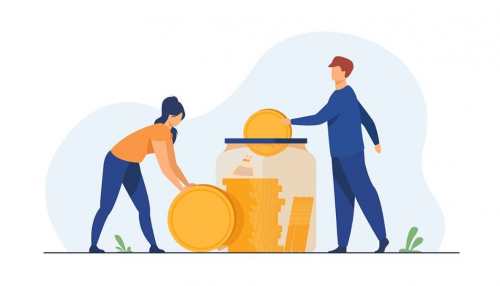- News>
- India
Interest Rate Hikes: Will FD Rates Surpass the 7% Mark?

Fixed Deposit, as a savings option, can also work as an emergency fund, if you need to fund unplanned expenses.
A Fixed Deposit (FD) is a savings instrument issued by banks and non-banking financial companies (NBFCs) to their customers. You can set aside a fixed amount of money for a pre-decided span of time through an easy process. Get assured returns by enjoying the benefits of compounding. Fixed Deposit, as a savings option, can also work as an emergency fund, if you need to fund unplanned expenses.
Once your FD amount matures, your financier shall return the amount that you’ve saved. If you choose to receive the interest payout at maturity, the interest amount compounded throughout the tenure is also added to the principal amount. If you choose periodic interest payouts, you receive only the principal amount at maturity, and you get the interest payments as per your chosen payout frequency.
Why are fixed deposit rates important?
Before choosing to save with a fixed deposit, most individuals consider the FD interest rates offered by a financier. up to 8.5%. In the past few months, fixed deposit rates have increased significantly. In the increased FD rate scenario, most savers want to know if these rates will go on to surpass the 7% mark. However, before determining the same, it is important to understand the reasons for the increase in these FD rates.
Reasons for the Increase in the FD Interest Rates
The increased repo rates by the RBI to control inflation have benefitted banks and NBFCs. They pass this benefit on to their customers. Increase in policy rates explain the FD rates hike better.
The FD rates of the banks range between 2.5% and 7%. On the other hand, Post Office FD rates range from 5.5% to 6.7% and NBFCs have the highest FD rates ranging from 5.5%, going up to 7%.
Now that the Fixed Deposit rates have reached the 7% mark, it remains to be seen if FD rates will surpass the 7% mark? After the clarification from the RBI that the cycle of interest rates has taken a turn, the FD rates by the NBFCs and the banks are already on a rise. The current expected trajectory of RBI’s policy rates shows that the FD rates are all set to increase in this year or the next.
Thus, we can expect this increase of beyond 7% from certain deposit-accepting NBFCs.
Will the FD rates Touch 8%?
Well, the likelihood of the FD rates reaching an 8% mark, especially in 2022, is lower. We do not know how high the Fixed Deposit interest rates are going to rise in the future. But the chances of 8% in a few quarters’ time isn’t nil.
In fact some NBFCs are offering interest rates nearing the 8% mark, which may also mean that you can grow your savings at interest rates above 8%.
How can you benefit from increasing FD rates?
Let us quickly look at a table that has been curated with the use of an FD Calculator to explain how the increasing Fixed Deposit interest rates increases the total maturity amount that you are eligible to receive after the tenure ends.
Suppose you decide to put aside Rs. 5,00,000 for a span of 5 years, when the interest rate is 4%, you receive a maturity amount of Rs. 608326, earning a total interest of Rs. 23397. The above table shows that as the interest rate increases, the same amount of Rs. 5,00,000 for the same tenure of 5 years gives an increasing interest rate and total maturity amount. This proves a point that increasing Fixed Deposit interest rate is going to be in your favour, only benefitting you with a higher maturity amount. You can use an FD Calculator online to forecast the interest rates and your maturity amount easily.
How should you plan your savings?
With the increase in fixed deposit interest rates, revisiting your saving strategy is a prerequisite, so you can reap the benefits of the current interest rates. For the current scenario, it is advisable to ladder your deposits across different tenures. You can reap the benefits of higher FD rates by locking in a portion of your savings in high-interest deposits. However, since FD rates are touted to see further upward revisions, it is best to choose tenures of 1 year for some of your deposits.
When interest rates increase in future, you can renew your deposits at a higher interest rate, as well.
Make sure to not opt for auto-renewal facility for your FDs as it hinders your freedom to choose the interest rates and tenure of your choice. These strategies can work well for you if you use FDs to park your emergency funds. Besides, diversifying your new FD investments can be a great way to receive better average rates.
No wonder, the FD rate hikes are great for your increased chance of receiving a much higher maturity amount. Don’t think twice and secure your financial goals by setting aside some of your income for an FD.
(Disclaimer: Above mentioned article is a Consumer connect initiative. This article does not have journalistic/editorial involvement of IDPL, and IDPL claims no responsibility whatsoever.)
